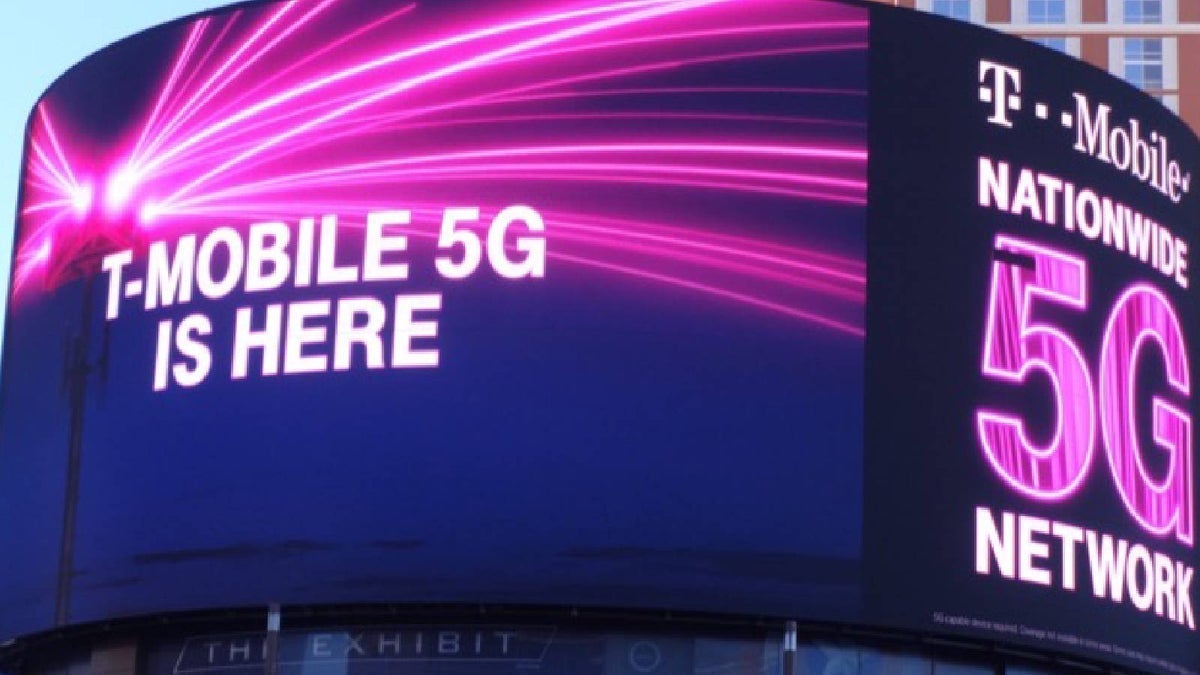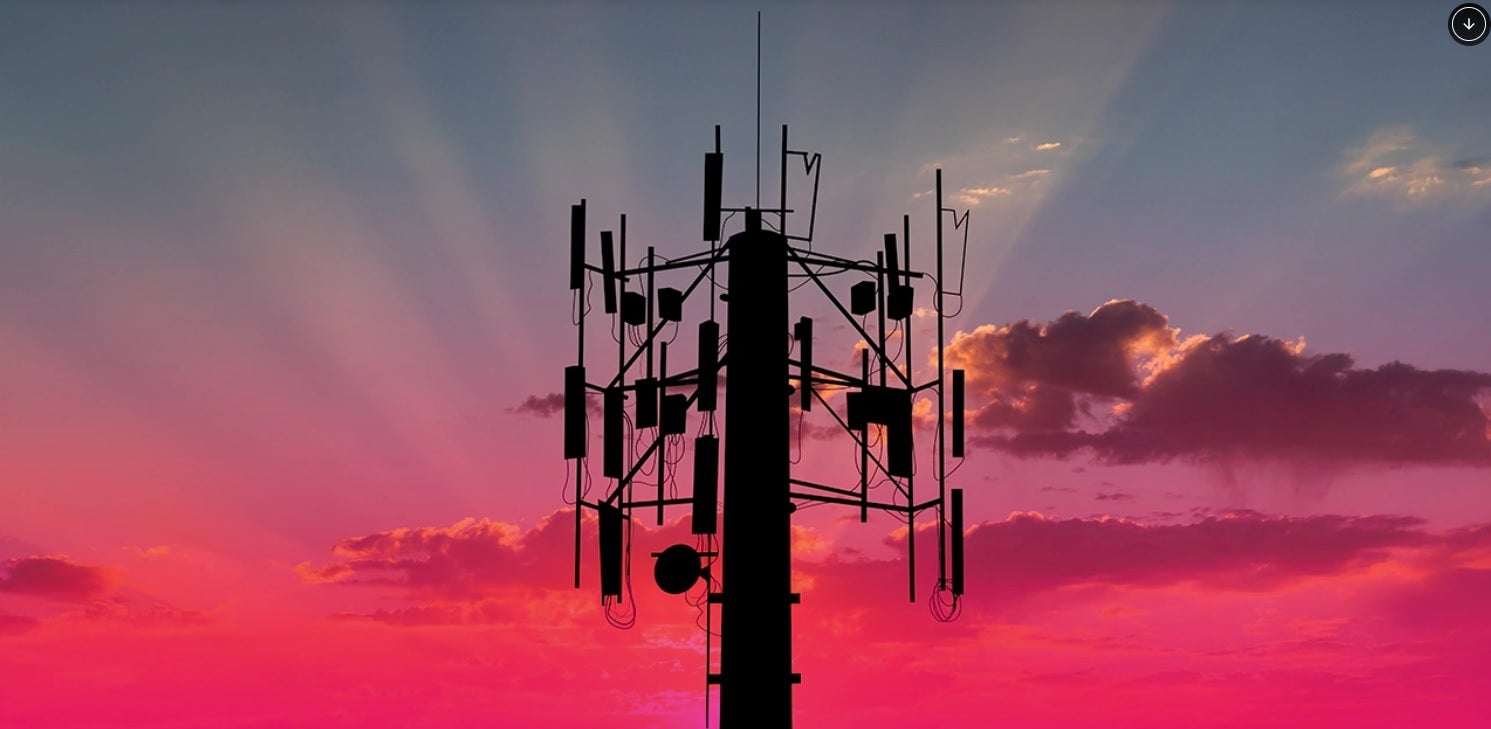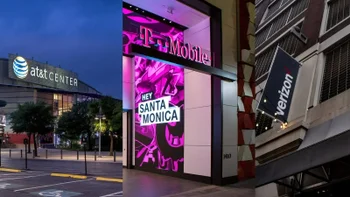T-Mobile achieves a record-breaking uplink speed of 550Mbps using 5G Advanced technology

When we discuss how fast a carrier's data speed is, we are usually talking about downlink speeds, or the speed at which data is transferred from the internet to your phone. The lesser discussed uplink speeds measure how fast data is sent to the internet from your device. When bragging to your buddies about how fast your wireless provider is, the former is the speed mentioned.
T-Mobile achieves a record-breaking uplink data speed of 550Mbps in a commercial (non-lab) setting
Uplink speed is still a big part of the experience of using your phone. T-Mobile has announced today that it has set a record for uplink data speed using its 5G Advanced technology. Late last month, the nation's second-largest wireless provider started offering 5G Advanced service to certain customers across the US. 5G Advanced requires the use of a standalone 5G network. Right now, only T-Mobile is using SA 5G nationwide, which means that the particular network was built with 5G in mind and was never used for 4G transmissions.

T-Mobile announces a record-breaking 5G uplink data speed of 550Mbps. | Image credit-T-Mobile
The next carrier to offer nationwide SA 5G will probably be Boost Mobile. Verizon and AT&T are still working on their SA 5G networks. We should point out that in order to use 5G Advanced, a T-Mobile customer must have a compatible phone.
The record uplink speed of 550Mbps in sub-6GHz spectrum was achieved using Release 17 UL Tx Switching. This technology uses multiple transmit antennas to improve the reliability and data rate from the upload connection to the base station. Using different antennas to transmit the same information makes it easier for the network to receive the signal.
The carrier says that while speeds differ by location, typical on-device downlink data speeds on T-Mobile's nationwide 5G network are 89–418 Mbps with occasional peaks over 1 Gbps. Typical uplink speeds are in the range of 6–31 Mbps. You can see why a 550Mbps uplink speed is something for T-Mobile to crow about.
T-Mobile says that while downlink speeds have always been the focus of the wireless industry, the future that the carrier sees includes connections that are interactive, cloud-connected, and run in real time. T-Mobile says that this means uplink connectivity is more important than ever before for power users, creators, and gamers. The carrier says that it is leading the way as these users need a phone that will upload as fast as it downloads.
"Everyone obsesses over download speed, but at T-Mobile we see what’s coming, and uplink is the next big thing. Whether you’re uploading 4K video, gaming in real time, or powering a VR headset, this record shows that T-Mobile is already building the network for that future and focused on bringing the best customer experience."
-Ulf Ewaldsson, President of Technology, T-Mobile
The record uplink data speed was not created by T-Mobile in a lab but was achieved at a real commercial site in Seattle. The wireless provider used some of the tech available in 5G Advanced, such as Carrier Aggregation. This combines single frequency bands into a wider virtual channel that hosts a higher capacity of traffic. Think about how much faster you can drive on a highway when additional lanes have been added. Another 5G Advanced trick, MIMO (Multiple-Input Multiple-Output), adds antennas to base stations and the target phones.
How T-Mobile set the record
The live network demonstration was done on 100MHz of Time Division Duplex (TDD) spectrum (n41) and 35MHz of Frequency Division Duplex (FDD) spectrum (n25). The former uses a single band for both uplink and downlink communication. The latter uses separate frequency bands for uplink and downlink communications. A MediaTek test smartphone was employed, sporting an M90 5G modem.
Even while subscribers are going on social media to complain about the declining customer service experiences they have had with T-Mobile, the carrier continues to be the most innovative and fastest-growing of the four major US carriers. T-Mobile is always looking for ways to expand its holdings of spectrum, which helps the company stay ahead of its rivals who have been complaining to the FCC about T-Mobile's domination in this area.
Follow us on Google News













Things that are NOT allowed:
To help keep our community safe and free from spam, we apply temporary limits to newly created accounts: